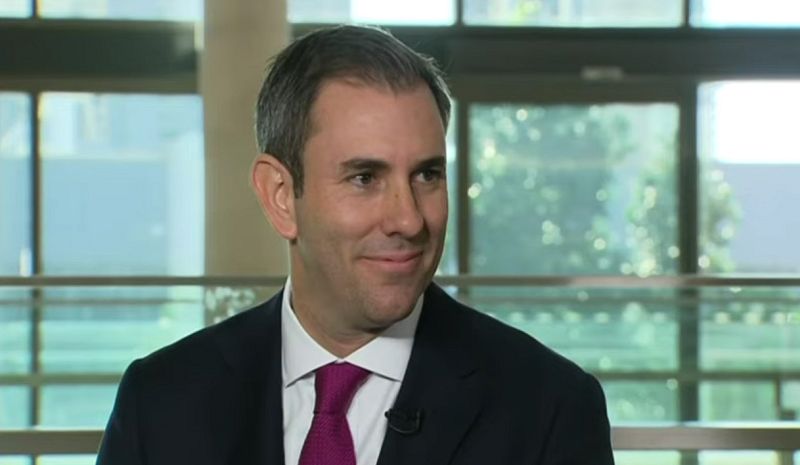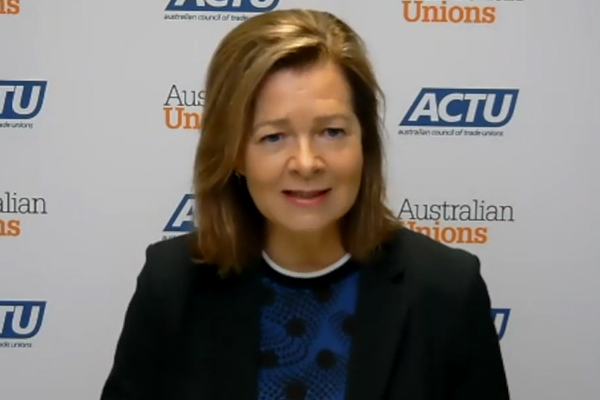Rather than working to fix the country's wage growth problem, politicians have instead resorted to blame and accusation, writes William Olson.
THE LABOR PARTY and the Australian Council of Trade Unions (ACTU) continue to hit out at the Morrison Government on its economic and employment records, after the latest negative figures from the ABS this week.
The ABS began the dour news by releasing the latest wage figures on Wednesday. And in doing so, the first quarter of the current financial year has yielded another interval of slow growth on wages.
The ACTU cited current ABS statistics which indicate a 0.1% decline in the Wage Price Index figures for the July-to-September quarter. This would project to an annual wage growth ratio of 2.2% for the private sector and 2.5% for the public sector for the 2019-20 financial year.
As the ALP points to the current economic slowdown being attributed to declines in both private and public sector wages growth in the previous 12 months, their key members have pointed out the frustrations felt by those who matter most — the Australian public.
‘No wonder so many Australians feel like no matter how hard they work, they just can’t get ahead,’ said Jim Chalmers, the ALP’s Shadow Treasurer, in a joint statement from the party on Wednesday.
The opposition party continues to point the fingers at the Scott Morrison-Josh Frydenberg partnership between the Prime Minister’s office and the Treasury — rightly so, amid any degrees of spin from the LNP.
Brendan O’Connor, the Shadow Minister for Employment and Industry said:
‘The Morrison Government’s spectacular failure on wages makes a mockery of Josh Frydenberg’s claim that “wages growth is a core for this government” earlier this year.’
And Tony Burke, the Manager for Opposition Business, alleges that the ruling LNP factions are so oblivious to the country’s economic woes to take the proper blame for them and not coming up with any solutions to fix them:
Australians are struggling, weak consumption is being driven by stagnant wages, household debt is at record highs, almost two million Australians are looking for work or for more work and retail trade has had its worst result since the 1990s recession, but the Liberals have no plan to turn things around.
Right when Australians need a plan to get their wages moving again, the Liberals and Nationals are too busy finger-pointing, blame-shifting, attacking unions, and squabbling amongst themselves.
Meanwhile, the ACTU points out that, as bad as the seemingly-constant wages stagnation trend is, the current numbers could have been worse.
This ABS’s quarterly wages report is its first since the implementation of a 3% increase to the minimum wage, with these coming as the result of negotiations between the ACTU and the Fair Work Commission, in the FWC’s annual wage review.
The ACTU declared in a statement:
‘If it wasn’t for unions fighting for a higher minimum wage, this result would be even worse.’
Moreover, the economic policies of Frydenberg and his predecessor as Federal Treasurer – ironically, Scott Morrison – have not been working, unless you count the admission of Mathias Cormann that low wage growth exists as a deliberate tactic by the LNP to attempt to influence economic growth.
Sally McManus, the ACTU’s secretary, said:
“The Morrison Government has said they want wage growth to be low. This is their plan working.”
And McManus has exploited the LNP’s inaction to combat stagnant wage growth that would otherwise stimulate the economy. Instead, the LNP shows little-to-no tactical adjustments to arrest their failing methods in action.
McManus added:
“Millions of Australian workers are facing their eighth year without a decent pay rise because of this Government’s obsession with a failed trickle-down economic experiment.”
To add insult to injury for the LNP’s futile attempts at damage control on the wages front, the ABS further reported on Thursday that unemployment and underemployment figures have worsened in the last month.
Exacerbating a situation McManus refers to as “double jeopardy” for the Morrison Government’s wages and employment shortcomings, national unemployment figures rose 0.1% to 5.3% overall and the underemployment statistics – referring to those in casual and/or other insecure work – showed a 0.2% rise to 8.5% overall.
McManus said in defining that status:
“1.1 million Australian workers need more work and can’t find it, private sector wages in private agreements are going backwards, and wage growth has been flat for eight years.”
She added, citing one general example linking underemployment and exploitation:
“Australian workers need good, steady jobs, but the Morrison Government is waving through more insecure forms of work and giving a green light to companies that want to exploit vulnerable temporary migrant workers.”
Nonetheless, the Morrison Government’s ministers, in exercising spin control on the figures in both areas, claim that everything with the economy, wages and employment are going on course headed to success.
Frydenberg and Employment Minister Michaelia Cash are among those within the Morrison Government’s assorted portfolios who remain most defiant — and bullish about the country’s outlooks on wages and jobs.
In a speech to an Australian Chamber of Commerce and Industry event in Brisbane in July, Frydenberg said:
Along with almost every other developed country, we face particular challenges when it comes to boosting the pace of wages growth.
Lower inflation and inflation expectations, moderate productivity growth and ongoing spare capacity in the labour market despite strong jobs growth have all contributed.
There are signs of improvement, but ultimately the best way to get higher wages growth is through a strong economy with rising productivity.
Meanwhile, Cash glosses over the unemployment and underemployment figures, wishing instead to accentuate a claim that the LNP Government has created 250,000 jobs in the last 12 months:
“Today's figures are not unexpected given the strong monthly consecutive employment growth.”
So ultimately, the Government’s spin on the economy goes against what some experts and the voice of regular Australians have to say, instead of addressing crises of wages and jobs. And the result works as a detriment to all Australians, especially those directly affected by the ABS’s most recent statistics.
And between the bickering and stubbornness, from both sides, maybe one question needs to be asked: aren’t there bipartisan solutions out there, for both the wages and jobs solutions? Or is asking for that just simply beyond this Parliament?
William Olson is a freelance journalist and hospitality professional. You can follow William on Twitter @DeadSexyWaiter.
 This work is licensed under a Creative Commons Attribution-NonCommercial-NoDerivs 3.0 Australia License
This work is licensed under a Creative Commons Attribution-NonCommercial-NoDerivs 3.0 Australia License
Support independent journalism Subscribe to IA.












